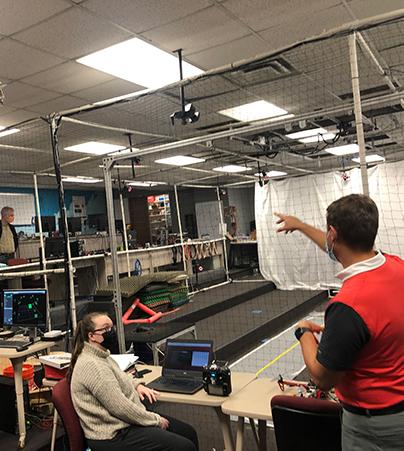
NGTC Fellows Visit NIMBUS Drone Lab
11 Nov 2021
Nebraska Governance and Technology Center Faculty Fellows and staff visited the NIMBUS Lab at the Univeristy of Nebraska-LIncoln School of Computing, Nov. 10.
The NIMBUS (Nebraska Intelligent MoBile Unmanned Systems) Lab is an exciting place where the latest research and technology in software and systems engineering, robotics, and sensor networks converges to develop more capable and dependable UAVs (unmanned aerial vehicles)
Justin Bradley, co-director of the Nimbus Lab and assistant professor at the School of Computing, gave attendees a tour of the lab and demonstrated the operation of how autonomous drones operate within an in-lab setting.
During his tour, Professor Bradley explained that the drones used in the lab were not only for monitoring and capturing visuals, but serve other purposes like collecting samples for environmental studies and research. Other known purposes for these drones include digging holes and placing sensors, and more. He also mentioend that some of the ongoing challenges with using drones include needing to rely on battery power, communications, and non-fixed wing flight.
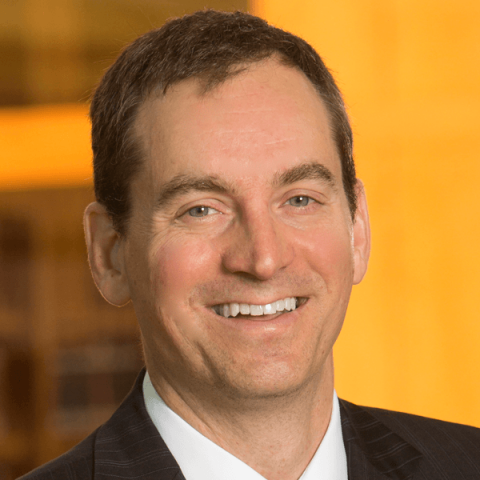
Schaefer Pens Op-ed for Leading Space News Site
10 Nov 2021
Professor Matthew Scheafer pens Op-ed for leading Space News site, dissecting what is being called the 4th industrial revolution. While first industrial revolution involved machines powered by steam and water, the second began with the harnessing of electricity, the third was launched with advent of computers and supercomputing. The 4th encompasses the Internet of Things, machine-to-machine communications, 3D printing, Big Data analytics, autonomous robots, life science developments, and more. Today there are roughly 20 billion connected “things” or devices with expectations for more than 80 billion connected devices by 2025, Schaefer's piece reflects on modern changes in law and the space industry.
Read the full Op Ed Here
Matthew Schaefer is the Veronica A. Haggart and Charles R. Work Professor of International Trade Law and Founding Co-Director of the Space, Cyber and Telecommunications Law Program. He has over two decades of law teaching experience and has taught courses in international law, international trade law, international business transactions, foreign relations law and policy, introduction to the American legal system, space law, and cyber law. In 2012, he led efforts to have the Law College adopt a required first-year course in international law for all J.D. students, and currently teaches a section of the course after co-teaching a combined course to all 1Ls with Professor Lepard for the seven years. Combined with his required upper-level course in international law for LL.M. students, most University of Nebraska students obtaining a J.D. or LL.M. degree are taught the basics of international law, and the intersection of international law with the US legal system, by Professor Schaefer.
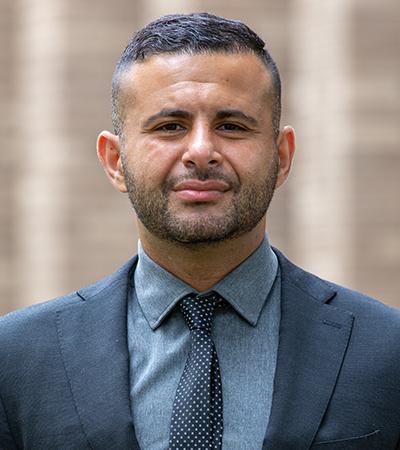
Professor and author Khaled Beydoun to discuss Islamophobia
08 Nov 2021
Khaled Beydoun, acclaimed authored and law professor, will discuss “Islamophobia: The Myths, Roots, and Rise” at noon Nov. 12 at the University of Nebraska College of Law.
The objectives of this lecture are to humanize the experience of Muslims during the War on Terror, describe the legal architecture/ legal framework of Islamophobia in America, bring attention to the distinct form of injury experienced by Muslims, and demystify stereotypes.
Beydoun’s research examines the legal construction of Arab and Muslim American identity, the foundational and modern development of Islamophobia and the intersection of national security policy, civil liberties, and citizenship. Beydoun is a leading public intellectual on Islamophobia, in the United States and abroad, and other matters relevant to policing and profiling of Muslim populations. He is the author of the critically acclaimed American Islamophobia: Understanding the Roots and Rise of Fear. In addition to his regular commentary in Al-Jazeera English, Beydoun’s insight has been featured in the Washington Post, the New York Times, San Francisco Chronicle, Time, Salon, and ESPN; and television and radio news programming including CNN, the BBC, Fox, NBC, and ABC News. Since 2019, Beydoun has annually been included on the list of the 500 Most Influential Muslims in the World.
Beydoun’s lecture is presented by the Muslim Law Students Association (MLSA). MLSA is dedicated to helping Muslim students feel welcomed and empowered to build the narratives of Muslims in the legal field together and aims to create a safe space for Muslim students and allies to discuss the multi-faceted experiences of Muslim law students.
The event is free and open to the public. This program has been approved for 1.0 CLE credit in Nebraska. Attorneys requesting CLE credit and those attending remotely should register at https://go.unl.edu/beydoun.
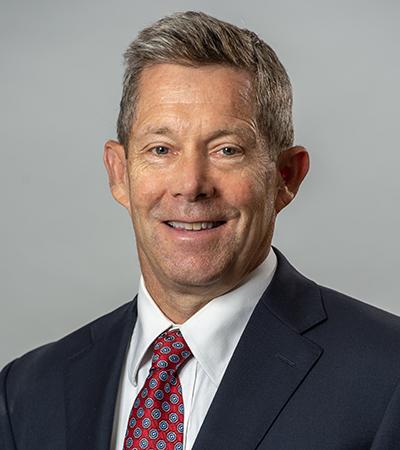
Direct Democracy Symposium features Chief Judge for the Sixth Circuit Court of Appeals
04 Nov 2021
U.S. Court of Appeals for the Sixth Circuit Chief Jeffrey Sutton will deliver the Lane Lecture at 4:30 pm Nov. 12 at the University of Nebraska College of Law.
Judge Sutton will discuss his new book Who Decides? States as Laboratories of Constitutional Experimentation. The first 20 registered guests will receive a copy of the book.
The discussion will continue Nov. 13 during the Direct Democracy Symposium.
The program includes nationally recognized scholars on the theory and practice of direct democracy, including Judge Sutton. The symposium was organized in response to Nebraska’s recent experience with ballot initiatives seeking state constitutional amendments that would legalize gambling and medicinal marijuana. Both initiatives were mired in litigation on the eve of the general election, and they resulted in two Nebraska Supreme Court opinions on the single-subject rule. This symposium allows participants to reflect on the role of direct democracy and to reconsider its design in Nebraska.
The Lane Lecture and Direct Democracy Symposium are supported by the Winthrop and Frances Lane Foundation which provides scholarships to students and provides grants to support faculty research and scholarly lectures. Winthrop Lane was born in Omaha in 1889 and attended Harvard Law School. He was a partner in the firm of Rose, Wells, Martin and Lane, a predecessor to the present Baird Holm law firm.
Both events are available in-person and via Zoom, although in-person attendance is encouraged. Registration is available at https://law.unl.edu/direct-democracy-symposium/. The events are free and open to the public. The symposium has been approved for 4.0 CLE credits.
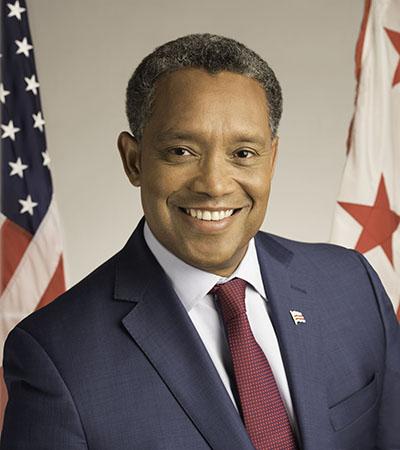
Attorney General for the District of Columbia to deliver law lecture
27 Oct 2021
Attorney General Karl Racine will present the Attorney General Jon Bruning Public Service Lecture at noon Nov. 5 in the College of Law’s Hamann Auditorium and available via Zoom.
Attorney General Racine was sworn in as the District of Columbia’s first elected Attorney General in 2015 and was reelected to a second term in 2018. As the chief legal officer for the District of Columbia, Racine relies on his nearly 30 years of legal and leadership experience to advise the mayor and District agencies, defend the city in court, and use the law to advance the public interest.
His career includes representing indigent residents in D.C., volunteering in a clinic supporting migrant farm workers’ rights, to serving as associate White House counsel in the first Clinton Administration and practicing white-collar and commercial litigation with leading law firms. While in private practice, Attorney General Racine was elected managing partner of his firm, Venable LLP, and became the first African American managing partner of a top-100 American law firm.
In addition to discussing his career, Attorney General Racine will talk personally about how current and aspiring lawyers can find ways to use the law to uplift vulnerable residents.
The Attorney General Jon Burning Lecture was established to provide an opportunity for students to focus on the significance of dedicating all or a portion of one’s career to public service. Bruning served as attorney general of Nebraska from 2003-2015 and as a state senator from 1997-2002. Bruning graduated Phi Betta Kappa from the University of Nebraska-Lincoln with high distinction and graduated with distinction from the Nebraska College of Law in 1994.
The talk is free and open to the public. We expect this program to be approved for 1.0 continuing legal education credit.
Attorneys wishing to receive CLE credit and those interested in joining remotely should register at law.unl.edu/alumni-cle.
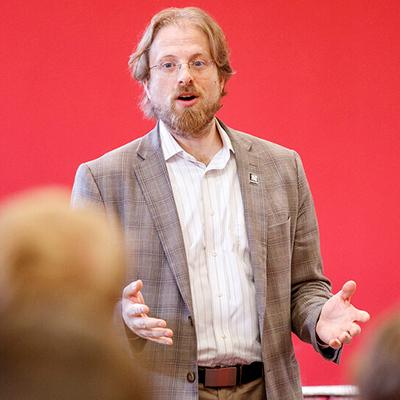
Hurwitz Speaks on Panel Discussing FTC
22 Oct 2021
Professor Gus Hurwitz, was a featured speaker during a panel titled "Does the FTC Have Authority to Issue UMC Rules?" hosted by TechFreedom on Oct. 21.
During the panel, Hurwitz shared his insight and perspective to help answer questions like: how will the FTC's crusade against the tech industry affect long standing antitrust policy? Is there merit to the FTC's lawsuits alleging Facebook as a monopoly? Is the FTC prepared for the barrage of rulemaking litigation to follow? What is the future of the FTC under Chair Kahn?
The panel was moderated by Bilal Sayyed, former director of the FTC’s Office of Policy Planning, and featured speakers Hon. Maureen Ohlhausen, Former Chair and Commissioner of the FTC, Prof. Thomas W. Merrill, Columbia Law School, Prof. Justin (Gus) Hurwitz, University of Nebraska College of Law, Peter J. Wallison, Senior Fellow Emeritus at the American Enterprise Institute (AEI), and Berin Szóka, President and Founder of TechFreedom
TechFreedom is a non-profit, non-partisan technology think tank launched in 2011. Their mission is to promote the progress of technology that improves the human condition and expands individual capacity to choose.
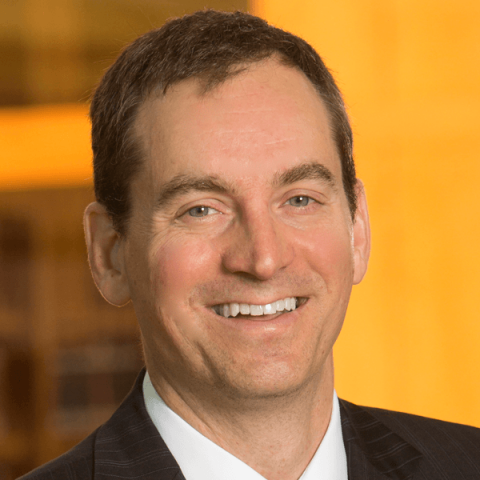
Schaefer Serves as Panelist for the 2021 Allen L. Poucher Lecture
20 Oct 2021
Professor Matthew Schaefer, Veronica A. Haggart and Charles R. Work Professor of International Trade Law and Founding Co-Director of the Space, Cyber and Telecommunications Law Program, served as a panelist for the 2021 Allen L. Poucher Lecture on October 13, 2021.
The 2021 Allen L. Poucher Lecture was created by Betty Poucher, Elizabeth Poucher Reynolds and Allen Poucher Jr. to provide support for a lecturer, professor, legal expert or expert panel to present an annual education event addressing relevant legal, political or business topics.
Professor Schaefer is a frequent speaker on current topics in space law across the country, including at the University of Michigan Law School, Fordham Law School, Columbia Law School, New York University Law School, University of California-Irvine Law School, University of Southern California Law School, Emory University Law School, and University of Florida Law School. Professor Schaefer has moderated, presented and/or participated on panels at eight major national or international conferences - the IAA Heads of Space Agency Summit, AIAA Space, the National Space Symposium, ABILA International Law Weekend, IISL Eileen Galloway Symposium, Annual UNL DC Space Law Conference, Newspace conference, and International Astronautical Congress.
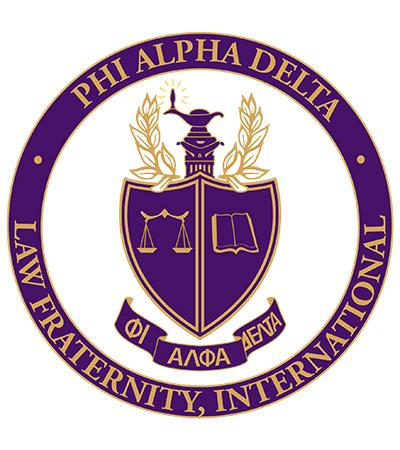
Phi Alpha Delta Wins Award for Career Closet
05 Oct 2021
The Manoah B. Reese Chapter of Phi Alpha Delta at the Nebraska College of Law has been honored with an Outstanding Community Service Program Award for its work with the Career Closet.
Phi Alpha Delta (PAD) chapters and officers are recognized annually for their outstanding fraternity achievements and performance, and for the impact they make locally and nationally. The Career Closet was chosen by the international PAD office as the second-place winner of community service programs.
The Career Closet provides free gently used or new business formal clothing to students at Nebraska Law and is open bi-weekly.
PAD is a preeminent law fraternity because of their dedication to service: service to the student, the school, the profession, and the community. The Reese Chapter is among over 200 other law school chapters.
If you have questions about the Career Closet or would like to make a donation, contact nelawcareercloset@gmail.com.
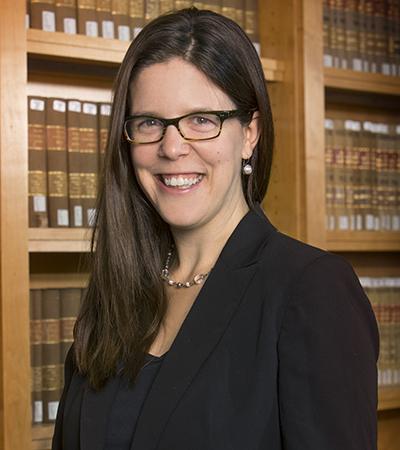
Shoemaker Named Recipient of the Ray H. Bunger Memorial Award for Excellence
05 Oct 2021
Professor Jessica Shoemaker is this year’s recipient of the Ray H. Bunger Memorial Award for Excellence. This Award is an annual award chosen on the basis of demonstrated excellence in teaching, research, academic promise, and achievement related to the fulfillment of the research and teaching mission of the University of Nebraska College of Law. The donor for this award gave this gift to commemorate the life of the donor’s father, Ray H. Bunger, who was a lifelong devoted supporter of the University of Nebraska. He sent his three sons to the University of Nebraska for varying periods and several of his grandchildren also received education at the University. He firmly believed that “a good education is something that can never be taken away from you.” He was President of the Franklin County School District #44 and Secretary of the Board of Upland COOP Credit Association.
Shoemaker’s scholarship productivity has been outstanding again this year. She had an article placed in the Michigan Law Review. She also wrote several other pieces that are gaining national attention, such as her piece for The Conversation and her essay in the online Regulatory Review. She also created, with Anthony Schutz, the Rural Reconciliation Project, which is a tremendous way to apply her scholarly insights and interact with a large group of scholars. I think this Project will have a significant impact going forward. Finally, Shoemaker received a Carnegie Fellowship, one of only 26 awarded across the country. It is quite an acknowledgment of the importance, impact, and high-quality of her scholarship.
Shoemaker also has had an impact with her teaching, both in her own classroom and with our colleagues across the College. In her classroom, she continued to excel, with extremely positive teaching reviews. Students raved about her ability to lead a class discussion, her effective communication style, and her use of technology and various visual aids. Shoemaker also was a peer leader by working with her faculty colleagues to create a forum for the faculty to discuss pedagogy, which was especially helpful during our turn to hybrid and remote learning over last summer. She also helped the faculty focus on race and inclusion issues as we discussed ways to bring those issues into our curriculum and pedagogy.
Finally, Shoemaker’s service was outstanding. She was a tremendous chair of the faculty appointments committee during a very difficult hiring year. She worked on other important committee projects, such as the readmission process, awarding NPILF grants, and hiring a new associate dean for faculty. She also engaged with the broader university through planning a national symposium for the Center for Great Plains Studies.
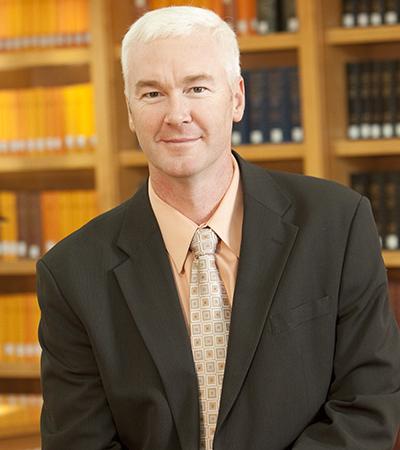
Schmidt Named Recipient of the John H. Binning Award for Excellence
05 Oct 2021
Professor Steve Schmidt is the recipient of this year’s John H. Binning Award based on his outstanding teaching and service to the College. With regard to teaching, Schmidt may have had one of the toughest course-adjustments necessary to adjust to remote learning and COVID-19 protocols, with a live clinic in a courthouse and a practical skills class like trial advocacy that puts a premium on in-person skills development. By all accounts Schmidt successfully taught the classes despite the difficult circumstances, as demonstrated by the extremely positive student evaluations. Schmidt’s Criminal Clinic course is one of the most highly rated courses at the College each semester. In addition, he singlehandedly revamped our trial advocacy program to create an intense and rewarding student experience. He teaches the course himself each semester in addition to his Criminal Clinic teaching. This teaching is time-intensive and requires coordinating multiple adjuncts and teaching assistants for the course each semester and managing multiple full trials for the students’ final project. The difficulties inherent in these logistics were multiplied by the COVID-19 protocols required by the pandemic.
Schmidt also provided excellent service to the College this year. His most time-consuming work involved him taking on head coaching responsibilities for our National Trial Team for the first time this year. He made an immediate impact, with one of the teams winning the regional competition and making it to nationals. Schmidt also smartly and successfully incorporated College alumni as consultants and judges for the Trial Team practices, which both strengthened our connection with those individuals and gave the students terrific role-models and mentors.
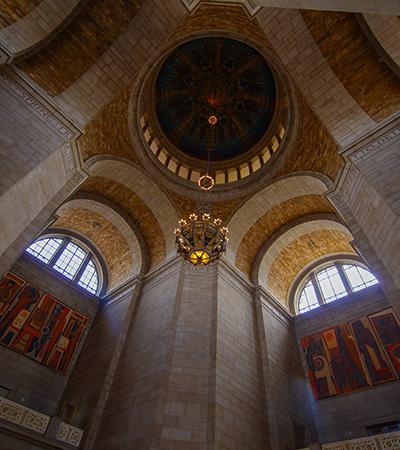
Nebraska's Legal Education for Public Service and Rural Practice Loan Repayment Assistance Program is now open
04 Oct 2021
The deadline to apply for loan forgiveness through Nebraska's Legal Education for Public Service and Rural Practice Loan Repayment Assistance Program is October 22, 2021.
The purpose of the Program is to recruit and retain qualified attorneys who: 1) are employed by tax-exempt charitable organizations and provide legal services to low-income people; or 2) provide legal services in designated legal profession shortage areas in Nebraska.
Eligibility criteria and application materials are available here: Nebraska's Legal Education for Public Service and Rural Practice Loan Repayment Assistance Program Packet
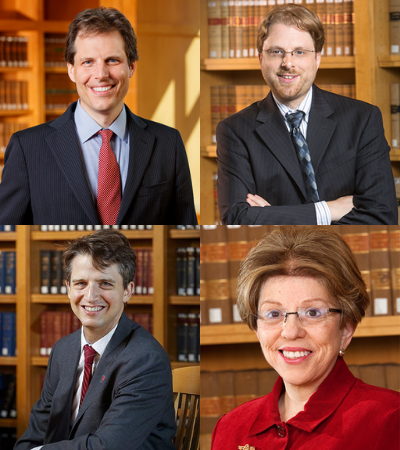
ACS and Federalist Society Hosts Constitution Day Discussion
17 Sep 2021
On September 17, the Nebraska College of Law chapters of the American Constitution Society and the Federalist Society hosted a panel discussion featuring Professors Eric Berger, Gus Hurwitz, Kyle Langvardt & Jo Potuto.
"Supreme Court Roundup" discussed some of the most important cases from the most recent Supreme Court term.

Nebraska Space Law Week Marks 14th Year of Annual Space Law Conference
14 Sep 2021
Nebraska Law’s Space, Cyber, and Telecommunications Law Program hosts numerous conferences and events every year, including an annual space law conference in Washington, D.C. that features faculty-authored white papers, invite-only government-industry round-tables, public sessions, and partnerships with leading think tanks and agencies. The program is pleased to continue its fourteen-year tradition of hosting an annual space law conference in the fall, happening virtually September 27 – October 1.
The week features daily substantive webinars, open to all, on modern space law challenges. Participants can register for as many sessions as interest them and sessions are free.
Panels include:
- Commercial Space: What’s Next for Regulatory Reform?
- The American Society of International Law Space Law Interest Group Presents the World Speaks Space Series: Africa
- Spectrum and Space Activities: Future Challenges and Opportunities
- Artemis Accords: Expanding and Implementing the Accords & Their Impact on Space Law
- "What About Everyone Else?" The Law of Armed Conflict and Neutrality and Proportionality in Space: Protecting Neutrals and Civilians in Space
Registration is available at: law.unl.edu/dc-conferences
While the program looks forward to returning to in person events in fall 2022, the virtual model allows important conversations on the challenges humanity faces in space to be accessible to individuals across the world, who may not have been able to join the conference in D.C. The Space, Cyber, and Telecommunications Law program is dedicated to furthering the conversation, even in the face of unprecedented times, at no charge.
Nebraska Space Law Week is Co-Sponsored by the American Society of International Law Space Law Interest Group and the American Branch of the International Law Association.
Since 2008, Nebraska Law has offered degree tracks in space, cyber, and telecommunications law. Graduates of the program have gone on to careers working for private companies like SpaceX; for civilian agencies like the NASA; for military operations such as the U.S. Cyber Command and Space Operations; as well as for think tanks and law firms. Questions about the program or Space Law Week may be directed to the program’s coordinator Joshua Redwine.
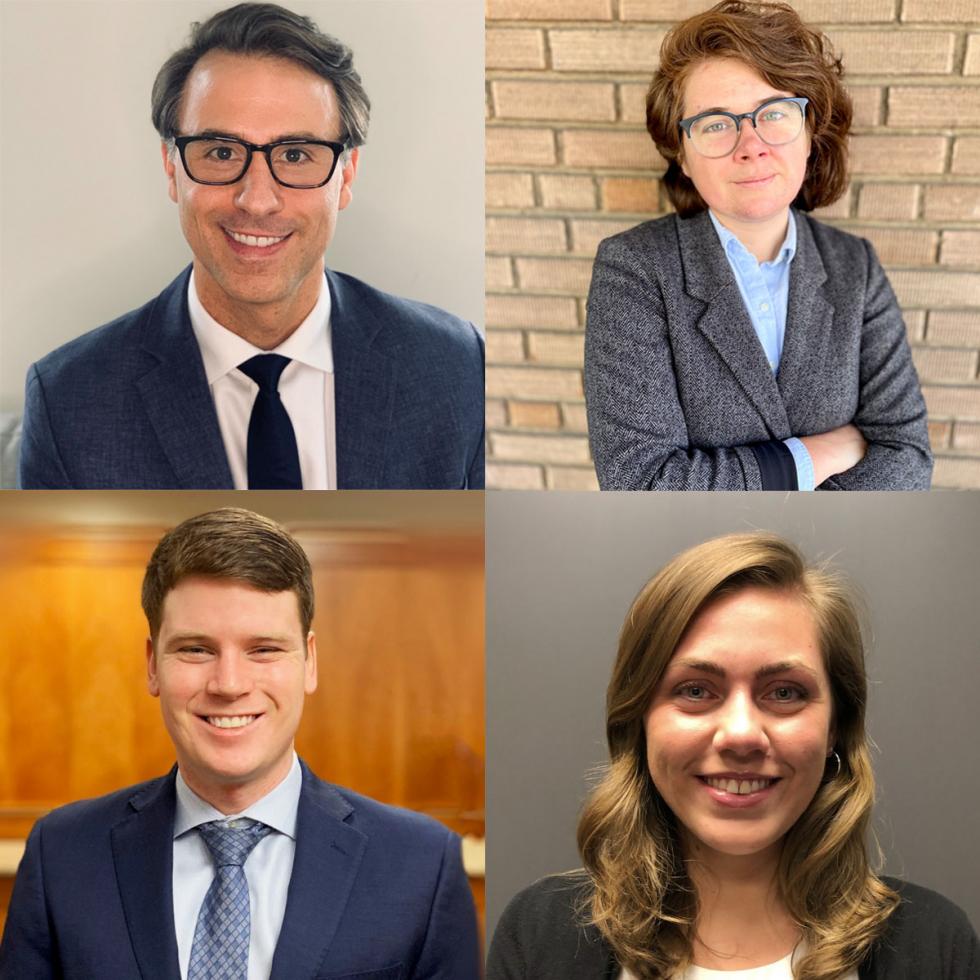
Student Papers Win Awards in Nebraska Governance and Technology Center Competition
13 Sep 2021
The Nebraska Governance and Technology Center (NGTC), based in the Nebraska College of Law in collaboration with the Nebraska Colleges of Business, Journalism and Mass Communications, and Engineering, is pleased to announce the winners of its inaugural student paper competition.
The competition received over 20 quality submissions, making these contributions impressive standouts!
First Place, to be printed in Volume 100:4 of the Nebraska Law Review, Algorithmic Decision-making and Corporate Risk: Toward Transparency Through Corporate Disclosures, Kevin Kuhn, Georgetown University Law Center
Second Place, The "Prime Factors" of Quantum Cryptography Regulation, Lindsay Rand and Theodore Rand, University of New Hampshire Franklin Pierce School of Law
Third Place, Patents as an Avenue for Women's Empowerment: How Contraceptive Innovation has Advanced Gender Equality in the United States, Jennifer Black, Villanova University Charles Widger School of Law
Honorable Mention Fourth and Fifth Place Papers
You Own Your Thoughts: Psychographic Data as Cognitive Property, Tyler Goss, University of San Diego
The Future Is Now: Robots As Surgeons The adoption of surgical safety standards to robotic surgery, Kanika Kalra and Manmeet Kaur Sareen, University of Cambridge
The prompt for papers was “how technology regulates.” Technology regulates human conduct in many ways. Technologies can be designed to enable or prohibit certain types of activity directly. They may be used instrumentally to monitor or control activity. Digital platforms’ content moderation decisions have effects on our information economy and democratic policy. Changing technologies can support, undermine, or confound existing regulations and regulatory norms, for instance by decentralizing currency or eroding the distinction between longstanding categories such as employees and independent contractors. This competition is for papers on topics such as these.
Launched in 2020, the Nebraska Governance and Technology Center is focused on the changing relationship between law and technology and its effects on society. The center is housed in the College of Law and includes an interdisciplinary team of students, faculty and researchers engaging in study with the Colleges of Business, Engineering, and Journalism and Mass Communications. Learn more about the center.
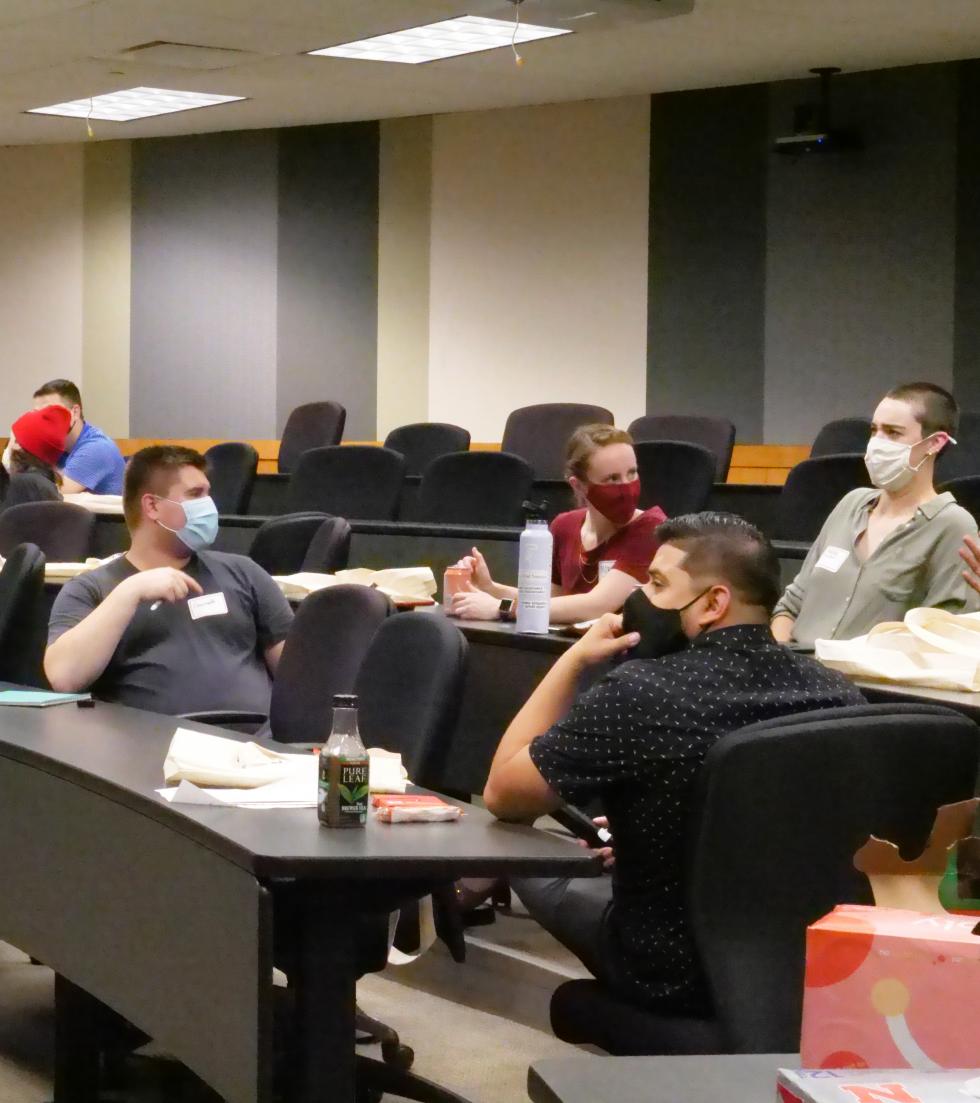
Nebraska Governance and Technology Center announces student fellows
13 Sep 2021
The Nebraska Governance and Technology Center has announced its second class of student fellows, with students from graduate programs across the University of Nebraska–Lincoln.
Members of the class come from a diverse range of programs — from integrated media communications and computer engineering to law — but share an interest in exploring the pressing issues technology fosters within society from an interdisciplinary perspective.
Each student fellow will join a multidisciplinary team tasked with investigating a technology-related topic of their choosing over the course of the academic year. Led by the center’s research associate, Neil Rutledge, their fall research will culminate in a group project that leverages their team’s diverse talents to produce a project emphasizing creativity and drawing on the group’s unique skill set. In the spring, each group will turn its attention to developing and producing an episode of the center’s podcast, Tech Refactored, delivering insights into the topic they’ve been researching during the academic year.
In addition to their research and project development, student fellows will participate in select events with the center’s faculty fellows and will have the opportunity to attend lectures from leading experts in their fields. A further goal of the program is to create a community of scholars that could provide opportunities for future collaboration; to that end, the student fellows program also includes social events throughout the year.
The 2021-22 Nebraska Governance and Technology Center student fellows, with their college(s), are:
- Morgan Armstrong — Law
- Ece Baskol — Business
- Bogac Canbaz — Engineering
- Alicia Christensen — Law
- Christopher Clark — Engineering, Arts and Sciences
- Joshua Alexander Lee — Law
- Mei Fong Looi — Business
- Izuchukwu Mbaraonye — Business
- David Ornelas — Journalism and Mass Communications
- Jeffrey Owusu-Ansah — Law
- Paige Ross — Law
- Garrett Wirka — Engineering
The group held its first session Sept. 2 at the College of Law.
Launched in 2020, the Nebraska Governance and Technology Center is focused on the changing relationship between law and technology and its effects on society. The center is housed in the College of Law and includes an interdisciplinary team of students, faculty and researchers engaging in study with the colleges of Business, Engineering, and Journalism and Mass Communications. For more information, click here or contact Elsbeth Magilton, executive director, at elsbeth@unl.edu.
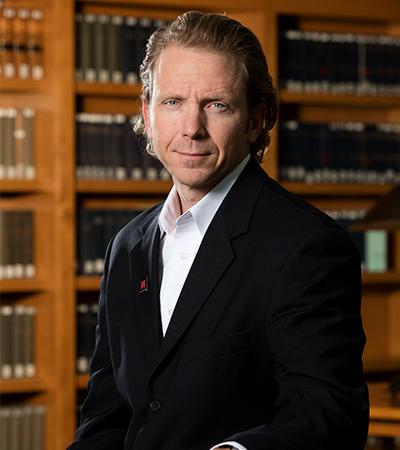
Schutz's Article Published in Pacific Law Review
13 Sep 2021
Professor Schutz published Agricultural Discharges Under the CWA: Old Questions and New Insights, in the Pacific Law Review, as part of a symposium on agricultural issues.
The article argues that County of Maui v. Hawaii Wildlife Fund, 140 S. Ct. 1462 (2020), exposes a question that has long plagued efforts at regulating agricultural pollution: the necessary connection under the Clean Water Act between the origin of pollutants and the enigmatic "waters of the United States" embodied in the term "discharge." This connection has been a fighting issue in CWA cases since at least 1994, and represents one of three areas in which the scope of the CWA is disputed (along with "waters of the United States" and "point sources" of pollution). The Court's attention to the matter in County of Maui may clarify the murky doctrine that has developed in cases involving concentrated animal feeding operations and agricultural discharges more generally. It may also provide some clarity to the concepts of nonpoint-source pollution and agricultural-stormwater-discharge exception. All of this may help improve water quality on agricultural landscapes.
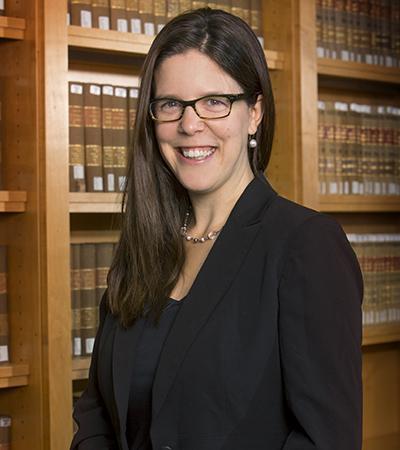
Shoemaker's Article Published in Michigan Law Review
07 Sep 2021
Professor Jessica Shoemaker’s article Fee Simple Failures: Rural Landscapes and Race was published in the Michigan Law Review.
The article addresses the evolution of agricultural land ownership in the United States, with a focus on how intentional racial exclusion in historic property systems contributes to the current condition of 98 percent of agricultural land still being owned by people who are white. But it also explores how land ownership regimes intended to create widely dispersed ownership of agrarian land have instead resulted in increasingly dynastic, absentee, and concentrated land ownership. Professor Shoemaker argues that these land patterns result from intentional property law choices (that can be critiqued and changed) and that this foundation is at the root of the overlapping crises of racial injustice, climate change, and rural decline.
The article was also digested by The Rural Review, an online journal produced in conjunction with the Rural Reconciliation Project.
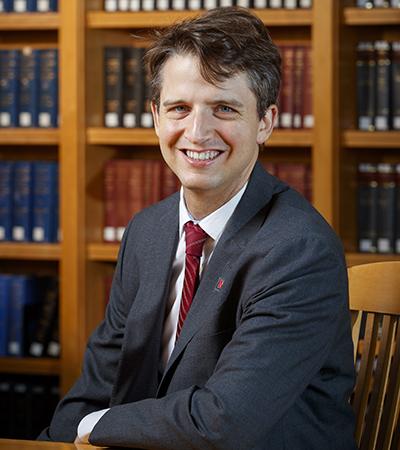
Langvardt’s Article Published in Journal of Free Speech Law
26 Aug 2021
Professor Kyle Langvardt’s article Can the First Amendment Scale? has been published by the Journal of Free Speech Law, a peer-edited law journal.
The article is part of a symposium on free speech and social media platform regulation. A brief synopsis is below:
American judges today preside over a laissez-faire regime of “editorial discretion” for private media entities. That approach promotes freedom of speech when applied to entities such as newspapers that handle content at a relatively small scale. But applied to entities such as Facebook that handle millions of items of third-party content a day, the laissez-faire approach threatens free speech by concentrating unchecked censorial power in the hands of a few companies. That outcome is probably avoidable, but only at the price of difficult transformations in First Amendment law that seem to carry their own significant risks. These changes will include a weakening in the editorial concept and a diminished role for the judiciary in defining the public law of free speech.
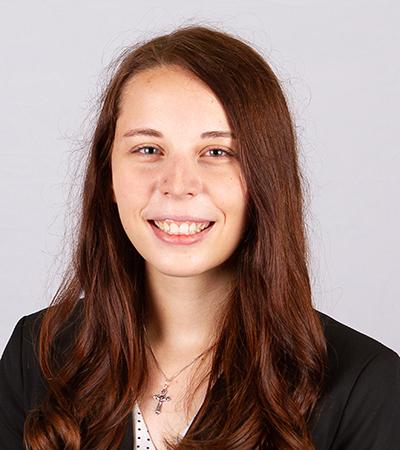
Shanahan Awarded 2021 Animal Legal Defense Fund Scholarship
25 Aug 2021
Kelly Shanahan, ’23, has been awarded an Animal Legal Defense Fund (ALDF) Advancement of Animal Law Scholarship. This award is presented annually to leaders of the ALDF student chapters who have demonstrated a commitment to ALDF’s mission, “to advance the interests and protect the lives of animals through the legal system.”
In 2020-2021, Shanahan was the vice president of the Nebraska Student Animal Legal Defense Fund and is currently the chapter’s president. This summer, Shanahan was an intern for the Earth Law Center, and she is working with the Animal Welfare Institute’s farmed animal program this fall.
Shanahan’s interest in animal law began after work for the University of Minnesota’s raptor center as a wildlife educator and naturalist. After working with birds protected by the Migratory Bird Treaty Act, Endangered Species Act, and the Bald and Golden Eagle Protection Act, she became passionate about wildlife conservation and environmental protection.
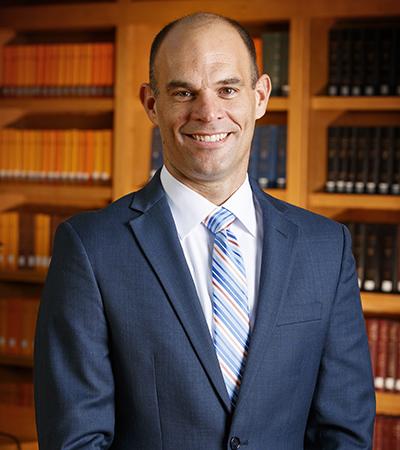
Marshfield’s Article Accepted by University of Pennsylvania Law Review
24 Aug 2021
Professor Jonathan Marshfield’s article America’s Misunderstood Constitutional Right was accepted by the University of Pennsylvania Law Review.
The abstract for the article is below:
In contemporary rights jurisprudence and theory, the Fourteenth Amendment and the Federal Bill of Rights are most frequently conceptualized as bulwarks against majoritarian abuses. From Brown v. Board of Education to Obergefell v. Hodges and even District of Columbia v. Heller, federal rights are primarily understood as enforceable legal constraints on popular majorities (especially intra-state majorities). Viewed through this lens, state constitutional rights are often dismissed as fundamentally dysfunctional because they are too easily amended through majoritarian political processes to constrain popular majorities. After all, what good is a state constitutional right to marriage equality, for example, if it can be quickly eliminated by a majority vote?
This article provides the first dedicated assessment of this perspective on state constitutional rights by drawing on a largely neglected set of sources: the debates of all known state constitutional conventions where state bills of rights were forged and reformed (105 conventions from 1818 to 1984). These sources suggest that prevailing critiques of state constitutional rights are misguided and limit our understanding of American public law. Although the Federal Bill of Rights may function as an important constraint on popular majorities, state bills of rights serve a different purpose. They were created primarily as a device for democratic majorities to control wayward government officials and representatives. State bills of rights were not designed to operate as higher law beyond the reach of legitimate democratic majorities. To the contrary, they were built to function as higher law beyond the reach of government, but always within the immediate reach of the people.
Excavating this perspective on state bills of rights not only places them in their proper historical and theoretical context, but it also disentangles them from their federal counterparts and enables more sophisticated inquiries into how constitutional rights function within our federal system. These findings also have timely implications for federal and state rights jurisprudence. With the Supreme Court now likely to reevaluate the breadth of certain federal protections – perhaps in favor of giving state courts more space to develop state constitutional rights – it is important that we have clarity regarding the deep structure of state constitutional rights. My findings show that despite well-intentioned exhortations from prominent judges and scholars, state constitutional rights are not built to provide an alternative corpus of meaningful counter-majoritarian protections – at least not in the same way as federal constitutional rights.